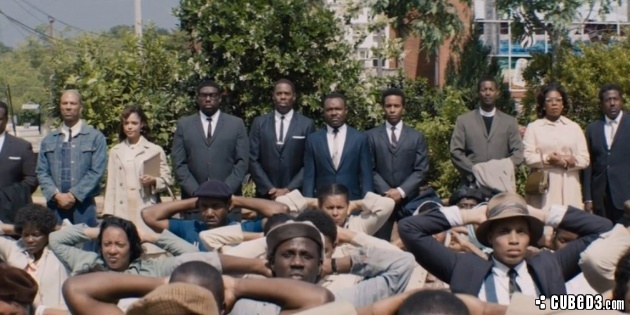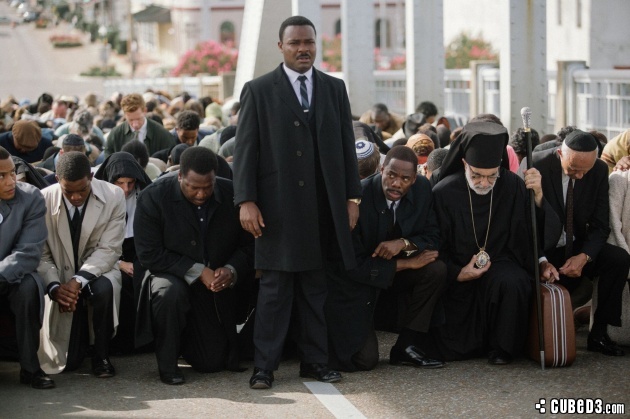
Selma (UK Rating: 12A)
As Selma opens in the UK this Friday, 6th February, the controversy surrounding its Oscar nominations shows little signs of dying down. Despite the achievements of 12 Years a Slave last year, all the 2015 acting nominees are white, the first time this has happened since 1998. Considered by many as a genuine award prospect, Selma only scored in the Best Picture and Best Original Song categories so, with competition for the top Oscars as fierce as ever, Lights, Camera, Action! checks out what all the fuss has been about.
Selma's title probably means more to an American audience than a British one. It's a town in Alabama where, in 1965, a march led by Martin Luther King eventually caused a major change in American law - and a significant step forward for the civil rights movement. Until then, the law said the black population could vote but some Southern states imposed conditions that made it impossible. The first attempt at the march, from Selma to Montgomery, was stopped after a vicious attack on the marchers by the police and state troopers. A second one went off peacefully, with King making a speech at its destination, the governor's building in Montgomery. The governor was segregationist George Wallace.
The film's historical accuracy has come into question, but that's not unusual for any film based on real events. On the screen, the audience sees President Johnson (Tom Wilkinson) caving in and granting a new law, not so much because of King's efforts but, ironically, as the result of a meeting with Governor George Wallace (Tim Roth). Wallace wasn't going to change his stance and LBJ (as President Lyndon B. Johnson is oft-referred to as) couldn't let the situation deteriorate any further. Wilkinson, who's become Hollywood's favourite elder Brit, makes a canny LBJ with a mouth that's probably cleaner than the one belonging to the real president - reputedly. Roth, however, delivers a one-note performance as Wallace and is little more than sly.
Du Vernay herself is a bold choice to direct the film, which originally had Lee Daniels at the helm. She brings a certain freshness to its tone, which is always respectful and aware of the story's significance, but never falls into the trap of being over-reverential or sentimental. Her background in documentary film making means she makes bold and effective use of archive footage and the fact that she was born after the events on screen took place means that her commitment is combined with a touch of detachment. The end result is a film with confidence and courage in equal measure.

Great - Silver Award


 Sign In
Sign In 02.02.2015
02.02.2015
 Subscribe to this topic
Subscribe to this topic Features
Features






 Top
Top

